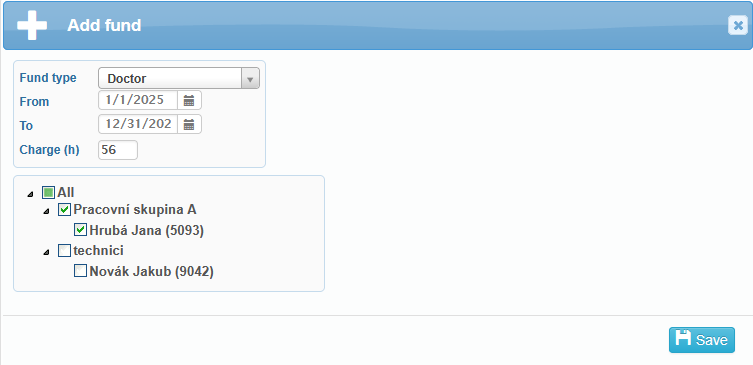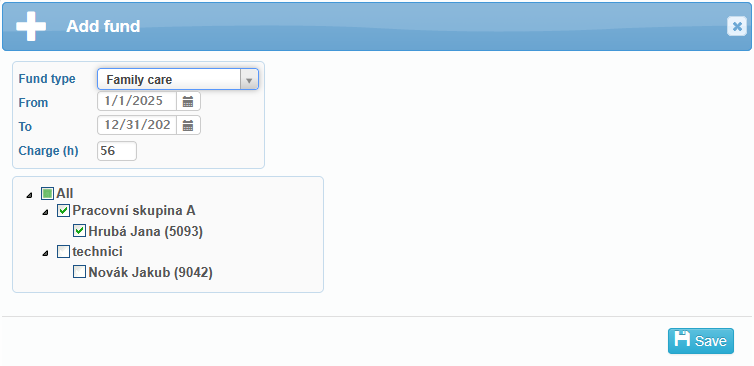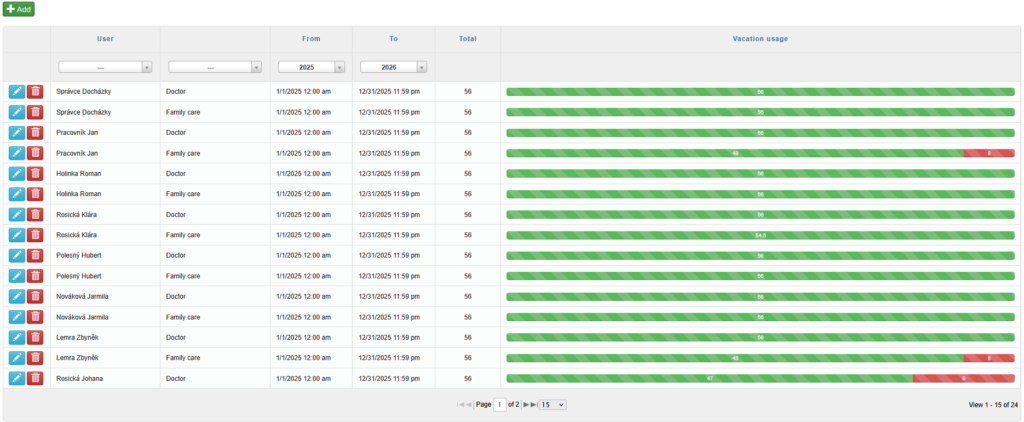According to Section 199 and subsequent sections of the Labour Code (Act No. 262/2006 Coll.), the employer is obliged to grant the employee leave from work if they are prevented from working due to so-called personal obstacles on the employee’s side. This leave may be paid or unpaid, depending on the specific situation. The scope and conditions are detailed in Government Regulation No. 590/2006 Coll. The employer is required to recognize these legal obstacles and grant the employee the corresponding time off.
(2) The employer is obliged to grant the employee leave from work for the following reasons and to the following extent:
a) medical examination or treatment of the employee in a healthcare facility
1. paid leave shall be granted for the time strictly necessary, if the examination or treatment could not be carried out outside working hours,
2. additional unpaid leave shall be granted for the time strictly necessary if the employee undergoes a medical examination on their own initiative and outside the scope of standard medical care,
3. paid leave shall be granted for the time strictly necessary for preventive medical check-ups related to pregnancy, if they cannot be carried out outside working hours,
b) birth of the employee's child; paid leave shall be granted for 1 day, usually on the day of the spouse’s or partner’s delivery,
c) accompaniment
1. of a family member to a healthcare facility for examination or treatment in case of sudden illness or injury, or for a pre-scheduled examination or treatment; paid leave shall be granted to one of the family members for the time strictly necessary, but no more than 1 day,
2. of a disabled child to a social care facility or a special school; paid leave shall be granted to one of the parents for the time strictly necessary, typically up to 10 days per calendar year,
Slovakia has a similar legal framework under the Labour Code (Act No. 311/2001 Coll.), where the conditions for granting leave from work are defined primarily in Section 141a and related provisions. Details about these conditions can be found in the information box below.
(2) The employer is obliged to grant the employee leave from work for the following reasons and to the following extent:
a) medical examination or treatment of the employee in a healthcare facility
1. paid leave shall be granted for the time strictly necessary, up to seven days per calendar year, if the examination or treatment could not be carried out outside working hours,
2. additional unpaid leave shall be granted for the time strictly necessary, if the examination or treatment could not be carried out outside working hours,
3. paid leave shall be granted for the time strictly necessary for preventive medical check-ups related to pregnancy, if the examination or treatment could not be carried out outside working hours,
b) birth of the employee's child; paid leave shall be granted for the time strictly necessary to transport the child’s mother to and from the healthcare facility,
c) accompaniment
1. of a family member to a healthcare facility for examination or treatment in case of sudden illness or injury, or for pre-scheduled examination, treatment, or therapy; paid leave shall be granted to only one family member for the time strictly necessary, up to seven days per calendar year, if the accompaniment was necessary and the procedures could not be carried out outside working hours,
2. of a child with a disability to a social care facility or special school; paid leave shall be granted to only one family member for the time strictly necessary, up to ten days per calendar year,
The Doctor and Family Care fund must first be enabled in the company settings (Administration – Company) under the Application tab, Attendance section, Attendance types sub-tab, Fund section.

Once the fund is enabled, a new item called “Fund” will appear in the Administration menu.
Using the icon ![]() located in the upper left corner of the screen, you can credit the Doctor or Family Care fund to all or selected users for a chosen period (most commonly one calendar year).
located in the upper left corner of the screen, you can credit the Doctor or Family Care fund to all or selected users for a chosen period (most commonly one calendar year).
In Administration – Fund, you can clearly view the crediting and usage of individual funds for specific users.
The system then automatically checks the usage of the fund when a new plan or request is entered. Fund usage is also, of course, checked during the approval or rejection of requests.
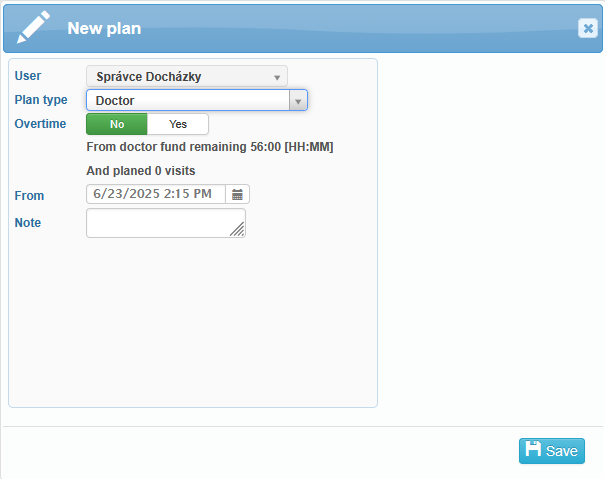
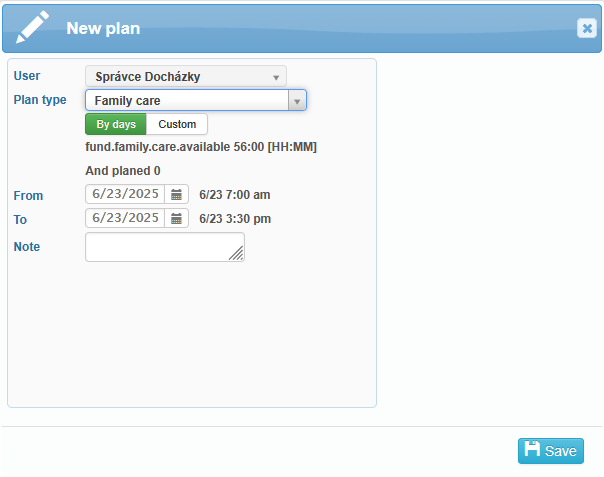
If the fund is exhausted, the user is not allowed to request a Doctor or Family Care plan. However, if the attendance plan is entered by an attendance administrator (a user with oversight permissions), it is possible to exceed the fund and go into negative balance.
A user also cannot request a Doctor or Family Care plan if they already have future plans entered and their total exceeds the remaining fund. Future plans are calculated based on the average value of past plans.
The employee has 6 hours remaining in their medical leave fund and has previously spent an average of 2 hours at the doctor.
The user knows that several more doctor visits are coming up and decides to request them in advance.
They submit the first medical leave request with an expected duration of 4 hours – the request can be saved. They then submit a second request, again with an expected duration of 4 hours – this request cannot be saved.
In reality, however, the first visit took 3 hours – the remaining balance in the medical leave fund is now 3 hours, and a new average value based on past plans is calculated, which determines whether new requests can be submitted.
As mentioned earlier, if an employee has exhausted their fund, it is possible to allow a negative fund balance when entering a plan or approving a request.
For the Doctor plan type, you can also select the option “Overtime – Yes”, in which case the doctor’s visit is not counted as worked time (and is not deducted from the medical leave fund either).

